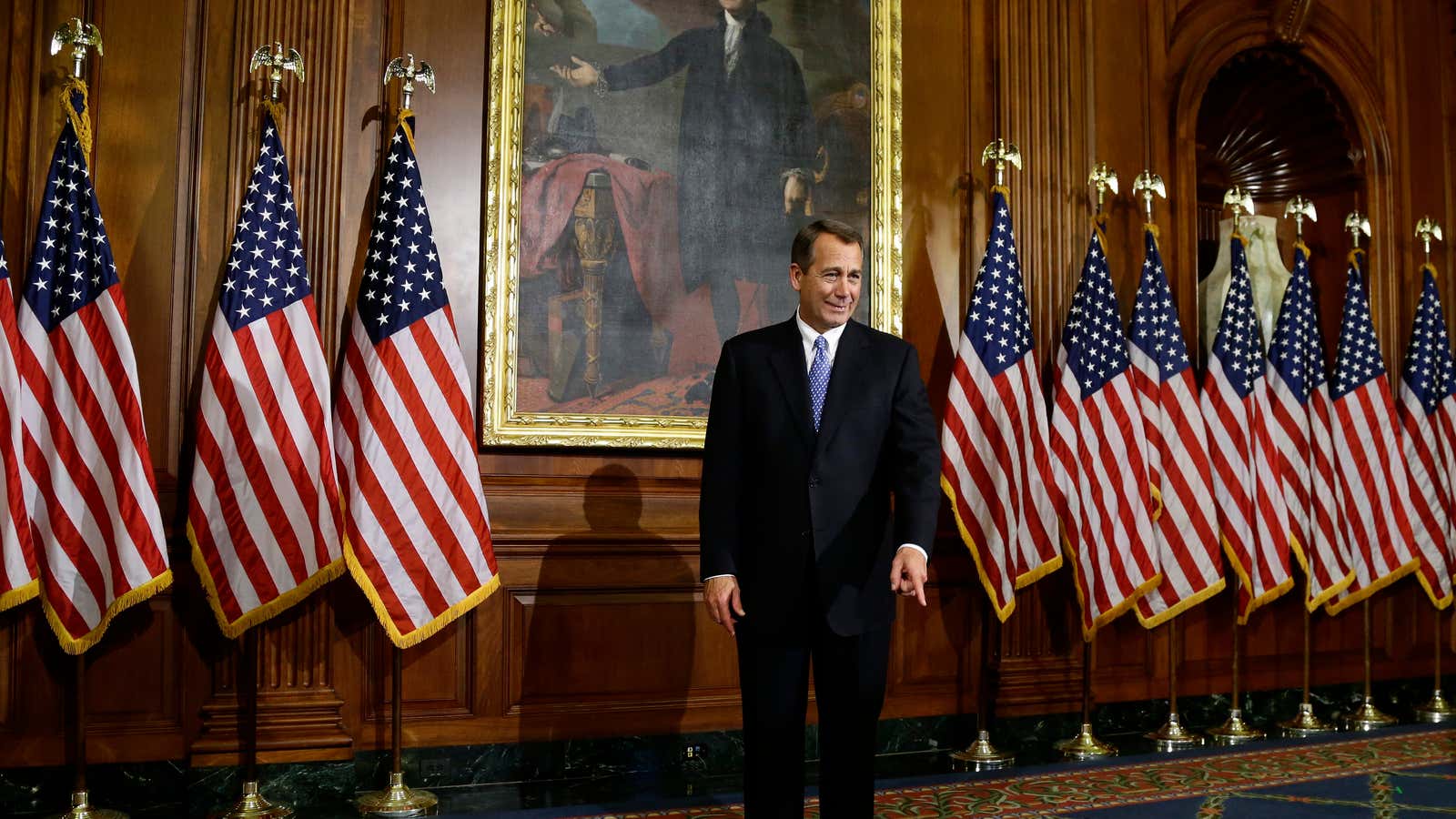The Republican opposition in the American House of Representatives has been on retreat this week. They’re doing a little soul-searching to reconcile their members’ inflated expectations of a confrontation with President Obama over the US debt ceiling with their desire to avoid taking the blame for the economic consequences that could result from such brinksmanship.
Their choice is reportedly to offer a three-month debt ceiling increase on the condition that Congress formally pass a budget for the first time in years, rather than managing spending through a series of stop-gap bills. The last time Congress passed a proper budget on time was in 1997, sixteen years ago, although Congress passed a budget in 2009, in the first months of Obama’s term.
In a way, this is just what the White House wanted: In refusing to negotiate over raising the debt ceiling, a measure required to pay past bills, the administration hoped to channel the bargaining into the regular budget process, which offers a similar crisis deadline—absent action, the government shuts down on March 27—but with less downside risk of failure. Unlike a debt default, a government shutdown could rattle markets and have small macro effects if spending is delayed. If it’s temporary, it’s not a huge disaster, but that depends on how quickly the two parties can come to an agreement. However, one Senate aide tells me, “the odds of government shutdown just went way up.”
That Republicans are already maneuvering toward that reality reflects the public pressure they have felt, not just from the media and the Democrats, but also their own stakeholders, something that many pundits underestimated in the hunt for ways to avoid the debt ceiling. If Republicans raise the limit, with a reasonable demand like passing a budget, it will make it harder for the White House to (accurately) criticize them for being irresponsible with the economy. That doesn’t mean that we’re back on the primrose path, however:
Republicans still need to pass this increase next week. There are already House members wondering if Speaker John Boehner can get the votes to pass a debt ceiling increase without tough spending cuts. The last time Boehner tried a negotiating gambit like this—the infamous Plan B—that would have put Democrats in a tight spot, his caucus wouldn’t go along. If he needs Democratic votes to pass this bill, as he did with the fiscal cliff vote and a natural disaster aid package, it will raise more questions about the strength of his leadership.
Then they need a budget deal. There’s a reason that Congress hasn’t passed a budget since 1997: It’s hard to come up with consensus. With the stupid spending cuts scheduled by the fiscal cliff to kick in on March 1, both parties have an incentive to come to a deal, but the usual obstacles remain: With annual discretionary spending at historic lows, cuts will have to come from social insurance programs. Democrats could sign on to such a deal with commensurate tax increases, but Republicans still don’t like tax increases. A compromise solution would have both, and remains the likely outcome—perhaps with another fiscal consolidation punt to give lawmakers time for an overhaul. They may just need to shut down the government first.
REMINDER: There’s no market or fiscal demand for immediate deficit reduction in the United States right now.
Are we going to face another do-nothing Congress? Over at our sister site, National Journal, Jim O’Sullivan paints a horrifying picture of “mini-cliffs” every few months as Congress and Obama tussle over America’s fiscal path without finding a final resolution. American policymakers have tons of unfinished business, including gun-safety legislation and immigration reform, but if they can’t get around to addressing any of it due to the on-going fiscal mess, the US will face another two years of policy stagnation, delaying some of the structural reforms that the US economy needs more pressingly than long-term fiscal certitude.




